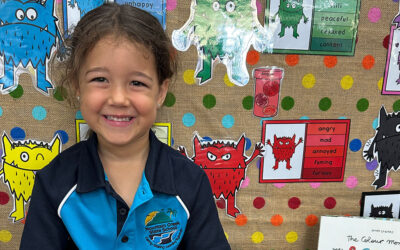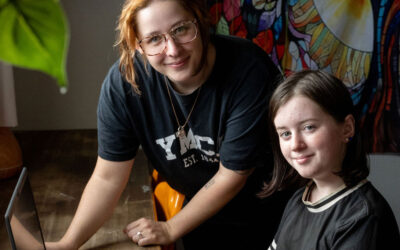Four years old can seem such a young age to start school, particularly if your child’s birth month makes them the youngest in the class. It’s common for parents to wonder if their child is ready for Prep, or whether they should wait a year and let the child start Prep with greater maturity. Although, this would make some children 18 months younger than others in their class. In child development terms, this is huge and just another consideration for parents.
A child’s first year of school is crucial to the success of their future academic career. It is not merely about learning to read, write and add up; it’s also about developing independence, problem-solving and social skills. If a child starts school before they are ready, they risk losing confidence, feeling isolated and falling behind.
What will your child need to be able to do in Prep?
When a child starts Prep, they will be required to perform a number of tasks outlined on the list below, a good guideline in determining prep readiness.
In their Prep year, your child will need to …
- be at school five days a week for six hours a day
- have an interest in learning
- wear shoes and socks all day long
- concentrate for long periods of time
- be obedient, take turns, follow rules and treat others with respect
- go to the toilet on their own
- speak clearly and make themselves understood
- run, skip, climb, throw and catch balls
- use pencils, scissors and a wide range of art materials
- ask if they need something or don’t understand
- change in and out of sports uniform and/or swimming costume
- sit quietly and listen without interrupting
- follow and remember instructions
- focus on a blackboard or electronic whiteboard
- use logic to solve problems
- work independently
- collaborate in small groups
- do regular homework and practice what they have learnt in class
Prep is very different to Kindergarten. Although a Prep class will typically have one teacher and a teacher’s aide, if there are multiple children feeling homesick or distracted, it can make for a difficult learning environment.
What skills are required for starting school?
Child development rates vary widely in the early years. There will still be six-year-olds who struggle with the demands of formal schooling and a few four-year-olds with the maturity to thrive in their Prep year.
There are biological differences too; girls tend to develop language skills earlier than boys. Steve Biddulph, the author of “Raising Boys” claims boys are six to 12 months behind girls when it comes to fine motor skills and paying attention.
Skills required for school include:
- Academic
- Social
- Emotional
- Self-care
- Fine motor
- Gross motor
- Verbal
- Cognitive
What is the difference between Prep and Kindergarten?
The difference between Prep and Kindergarten will be in how those skills are taught. Prep classes are more structured and the whole class follows the same curriculum. Pre-Prep (Kindergarten) classes are more play-based and educators take their cues from a child’s interest to nurture their skills beyond the Pre-Prep curriculum. So, if a child shows a particular interest in letters or numbers, the teacher will encourage them to take it further … but will not push it beyond their level of interest and enjoyment.
At Kings Christian College, the Kindy is located near the Prep classrooms and Kindy children visit and use the school facilities during their pre-prep year to familiarise themselves.
Who should I turn to for advice?
You will know your child better than anyone else – their personality, temperament and habits. Many parents have a gut feeling when their children lack the emotional maturity to start school.
The best authority on your child’s readiness for school, however, will be their Kindy teachers. These qualified educators will have observed how your child behaves in class, responds to teaching and co-operates with other children. They will also be able to identify any developmental ‘red flags’, such as problems with speech development or gross motor skills, which may require intervention from a paediatrician or child therapist.
Who has the final say on whether your child is ready for Prep?
All schools have their own enrolment policies. A few are happy to accept your child providing they meet the standard age requirements. Most will interview the child and parents. Some will require your child to undergo a full ‘school readiness assessment’ – a series of exercises and observations, usually carried out away from the parents. These will include activities such as building with blocks, identifying colours, shapes or parts of the body, using a pencil, cutting with scissors and answering some questions about themselves.
Depending on a school’s enrolment process, child interviews and assessments may take place nearly a whole year before your child will commence school. It is important to remember that a child will make a lot of progress in a year. If a school is unsure about your child’s maturity or considers them borderline, they might ask you to re-interview in six months’ time, to see how your child is advancing.
Many schools ask parents to provide a transition report from their child’s kindergarten but they are not legally permitted to contact the kindergarten directly to discuss the child.
Prep year is the foundation for your child’s future achievement in school. It is so important to get this right. If your child starts school before they are ready, they may find the Prep year distressing and develop a negative attitude towards learning and education. If they fall behind so much that they need to repeat their Prep year, this can have a detrimental effect on their self-esteem and confidence. Happy children are more receptive to learning than unhappy ones!
Article in collaboration with Kings Christian College


